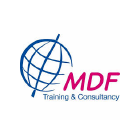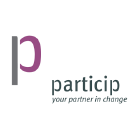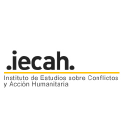WORKING WITH DG ECHO AS AN NGO PARTNER | FPA 2014 - 2020
PROCUREMENT MEDICAL SUPPLIES
DEFINITION OF MEDICAL SUPPLIES
Medical Supplies include all medicines and other medical products, in particular those included
-
on the national essential medicines list
-
on the World Health Organisation's list of essential medicines, proprietary medicines or generics, and therapeutic food to address acute malnutrition.
They shall not include veterinary products.
PROCUREMENT PROCEDURES
Irrespective of the value of the contract to be awarded, the Humanitarian Organisation shall procure medical supplies either:
-
through an HPC, or
-
by launching a procurement procedure
In the latter case, medical supplies must be purchased following a procurement procedure ensuring genuine competition (where possible), between pre-certified suppliers which can offer pre-qualified supplies (i.e. both supplier and supplies must meet internationally recognized standards). To this end, when procuring itself, the partner should get the support of staff qualified in health care (e.g. pharmacist).
Furthermore, considering the countries of operation, the partner should do a risk analysis of possible import obstacles or quality issues. These possible problems should be described in the risks section of the Single Form.
PRE-CERTIFICATION PROCESS
Before launching the procurement procedure, the partners will either have available or prepare a list of pre-certified suppliers that will be invited to submit an offer.
In order to be “pre-certified” a supplier will have had to demonstrate that it meets the following conditions:
-
its premises and facilities meet internationally recognised standards;
-
it is technically capable of ensuring the quality of active ingredients, and
-
its products come from approved suppliers.
-
Please note that a self-certification made by a supplier is not sufficient proof that the supplier meets the international standards.
To assess the fulfilment of the status of pre-certified suppliers, the partner can rely on:
-
its own assessment of the suppliers;
-
proof of pre-certification by other donor (e.g. USAID)
-
certification issued by an internationally recognised or reputable certification body (e.g. a WHO-approved body); or
-
certification issued by a Stringent Regulatory Authority (i.e. a medical regulatory authorities in the EU, Japan or the USA)
PROCUREMENT PROCEDURE WITH PRE-CERTIFIED CANDIDATES
The partners will send an invitation to negotiate simultaneously to a number of pre-certified candidates that ensures genuine competition (whenever feasible, the invitation should be sent at least to 3 candidates).
The invitation describing the nature of the supplies to be purchased will include at least the following criteria:
PROOF OF COMPLIANCE WITH SPECIAL PROVISIONS
The partners should keep in their files a thorough description of the various procedures described above: pre-certification and procurement procedure.
The partners should also be able to produce certificates of conformity, proof of quality and relevant documentation concerning the pre-qualification of drugs and the pre-certification of suppliers. All documents linked to quality assurance considerations, e.g. positive assessments by entities such as QUAMED and USAID should also be kept in the procurement file as evidence of quality compliance.
EXCEPTION ON QUALITY ASSURANCE DOCUMENTATION
The Annex III is mandatory in all cases as far as quality of food and medical supplies is concerned, regardless of ECHO contribution and regardless of the value of the procurement contract.
If the partner, for circumstances beyond its control, is unable to demonstrate compliance with internationally accepted product standards, it must follow these procedures
VETERINARY MEDICINES
The procurement of veterinary medicines, while not subject to the same quality requirements of the medical supplies, shall nonetheless be procured by the Partner with due respect of the applicable best veterinary practices in the field and, where possible, in consultation with an appropriately qualified animal health expert.
DESTRUCTION OF MEDICAL SUPPLIES AND VETERINARY MEDICINES
When procuring medical supplies or veterinary medicines, the Partner shall ensure that adequate provisions are in place to ensure respect of internationally recognised best practices in the destruction of any contract-related supplies that are recalled or expired.
REFERENCE, DOCUMENTS & USEFUL LINKS






